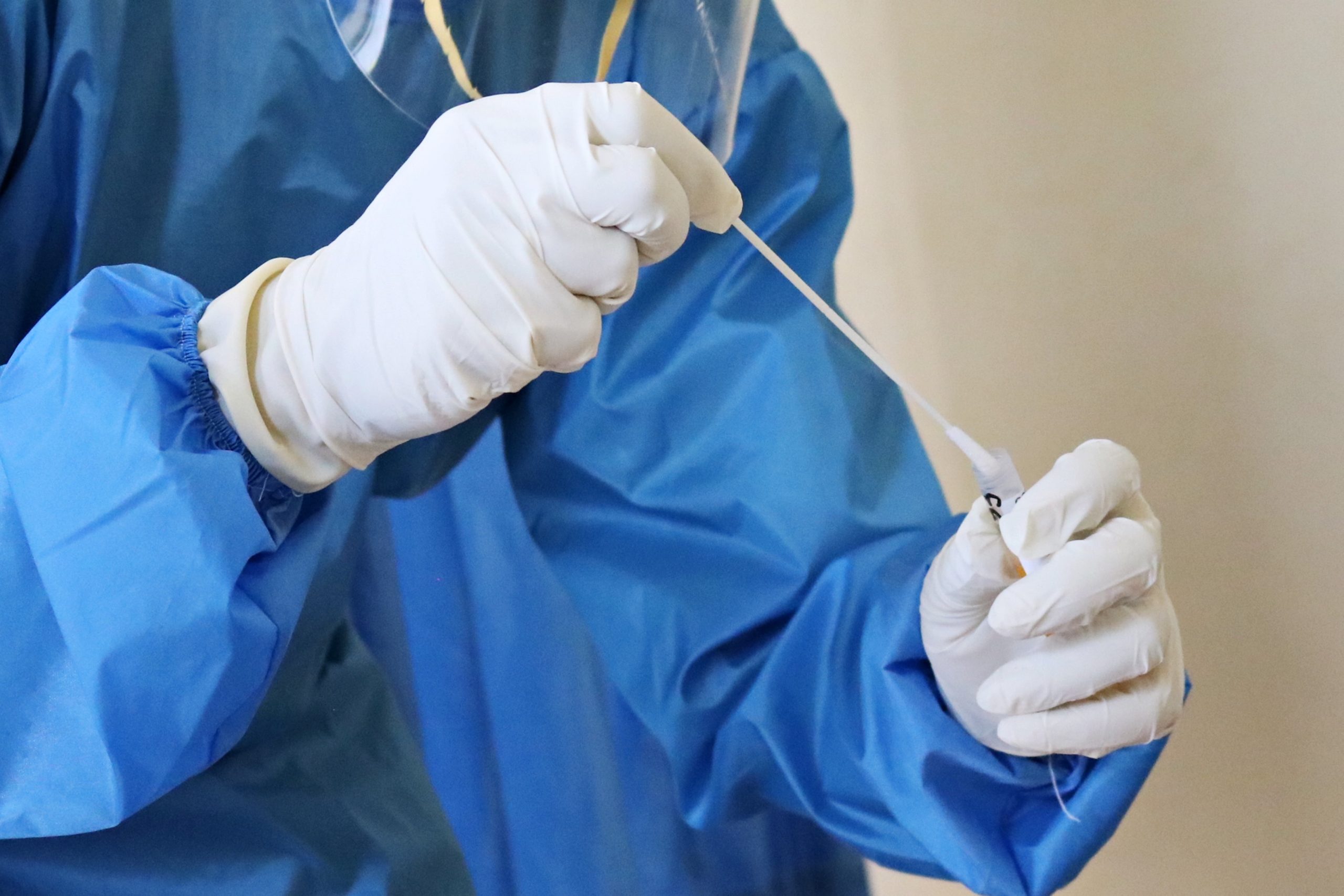WELLINGTON COUNTY — The local public health unit will be participating in a new provincial program to provide COVID-19 rapid antigen tests to schools and licensed day care centres.
On Oct. 5, Ontario’s chief medical officer of health Dr. Kieran Moore announced the province will be supporting the distribution of rapid antigen tests to schools in areas where “risk of transmission is high.
“Targeted asymptomatic screening has the potential to detect cases in schools earlier and reduce the risk of outbreaks and closures, particularly in communities across the province that have a high prevalence of active COVID-19 cases,” Moore stated in a press release from the province.
“Expanding access to rapid antigen screening may be another way to help keep schools safer and students in the classroom.”
To assist in identifying where high levels of transmission occur, local medical officers of health will determine where to implement the rapid antigen screening based on local factors and needs.
Moore noted that while vaccines and existing classroom prevention strategies such as masking, cohorting and daily symptom screening measures remain key defences against COVID-19, testing is also an important tool.
“By improving ventilation in Ontario schools and taking further action through the introduction of a targeted rapid antigen screening program, we are helping to keep schools safer and open,” education minister Stephen Lecce stated in the release.
“Routine rapid antigen screening of fully vaccinated individuals and children is not currently recommended given the effectiveness of the COVID-19 vaccines as well as the risks posed to the disruption of learning as a result of false positives,” the release also noted.
The release stated rapid antigen screening will be used only for unvaccinated asymptomatic students and children who are not high-risk contacts. Testing will be voluntary for unvaccinated children and students and will be conducted at home.
Symptomatic or high-risk contacts are recommended to continue to access lab-based PCR testing.
Children who receive a positive rapid antigen result will be required to also get a confirmatory PCR test at a local COVID-19 assessment centre and isolate until they receive results. Those who get a negative result will be able to continue with in-person learning.
Following the announcement from the province, Wellington-Dufferin-Guelph Public Health (WDGPH) also announced in an Oct. 5 press release the region will be participating in the program and that local planning is currently underway.
“I am pleased to see the province add this layer of protection,” said Dr. Nicola Mercer, medical officer of health, in the release.
“This program adds another local tool to fight this pandemic in Wellington-Dufferin-Guelph.”
Mercer continued, “COVID-19 can seriously impact a child’s health and their social and school lives.
“Testing gives us another way to protect individual children and those they live with, learn with and play with.”
Associate medical officer of health Dr. Matthew Tenenbaum said WDGPH is currently in the planning process to determine how to make best the use of tests locally and ensure they’re being used in a “risk-informed approach.”
Dr. Tenenbaum said rapid testing is an additional tool on top of the other measures at schools that have helped limit transmission or defined cases.
“The intention would be for it to add an extra layer of protection on top of the other things that are already happening in schools,” he explained.
He added measures like screening to keep cases from coming into the school, masking, physical distancing and cohorting have been critical steps in helping to reduce the risk of transmission within school settings.
“The addition of rapid testing, the intention there is to define cases that may not otherwise be known,” Tenenbaum explained.
Halt transmission
“I think the intention from the province is to find people who, if we intervene, we can halt the transmission and we’ll work with the province to determine how exactly we can deploy this tool to make sure that it does achieve that effect.
“We want to make sure that we’re doing something that’s value added to stop transmission in schools and we want to make sure that approach is informed by the best science on rapid testing and how we should use it.”
Tenenbaum noted schools in the region aren’t of high concern at this time, and there are a number of measures in place to ensure schools are safe for students.
“We always want to make sure we’re doing everything we should be doing, and this is one extra tool in our tool belt,” he explained, adding he doesn’t want people to worry that without rapid testing, the risk is intolerable.
Numbers coming down
“We have been fortunate that our case numbers overall have been coming down and given that we know the key risk determinant of COVID in our schools is COVID in our communities, that’s a really important factor for us to consider.”
Tenenbaum said in terms of determining which schools will require the testing kits, the process is still ongoing, but the idea would be to look at WDGPH indicators and determine, from there, what is considered a risk.
He said WDGPH will be having conversations with partners in the province to determine best practices and ideas.
“We do want to link the data and use indicators we already have access to that tell us about risk to inform decisions we make about what schools will benefit from this approach,” Tenenbaum added.
“It’s an extra tool in our tool belt and the question we face now is just exactly how best to use it,” he explained, adding officials want to ensure they’re being very thorough due to the program’s “resource intensive” nature.
“It’s asking a lot of schools and families and we want to make sure we do it right and in a way that actually modifies the risk and protects kids as best we can.”




